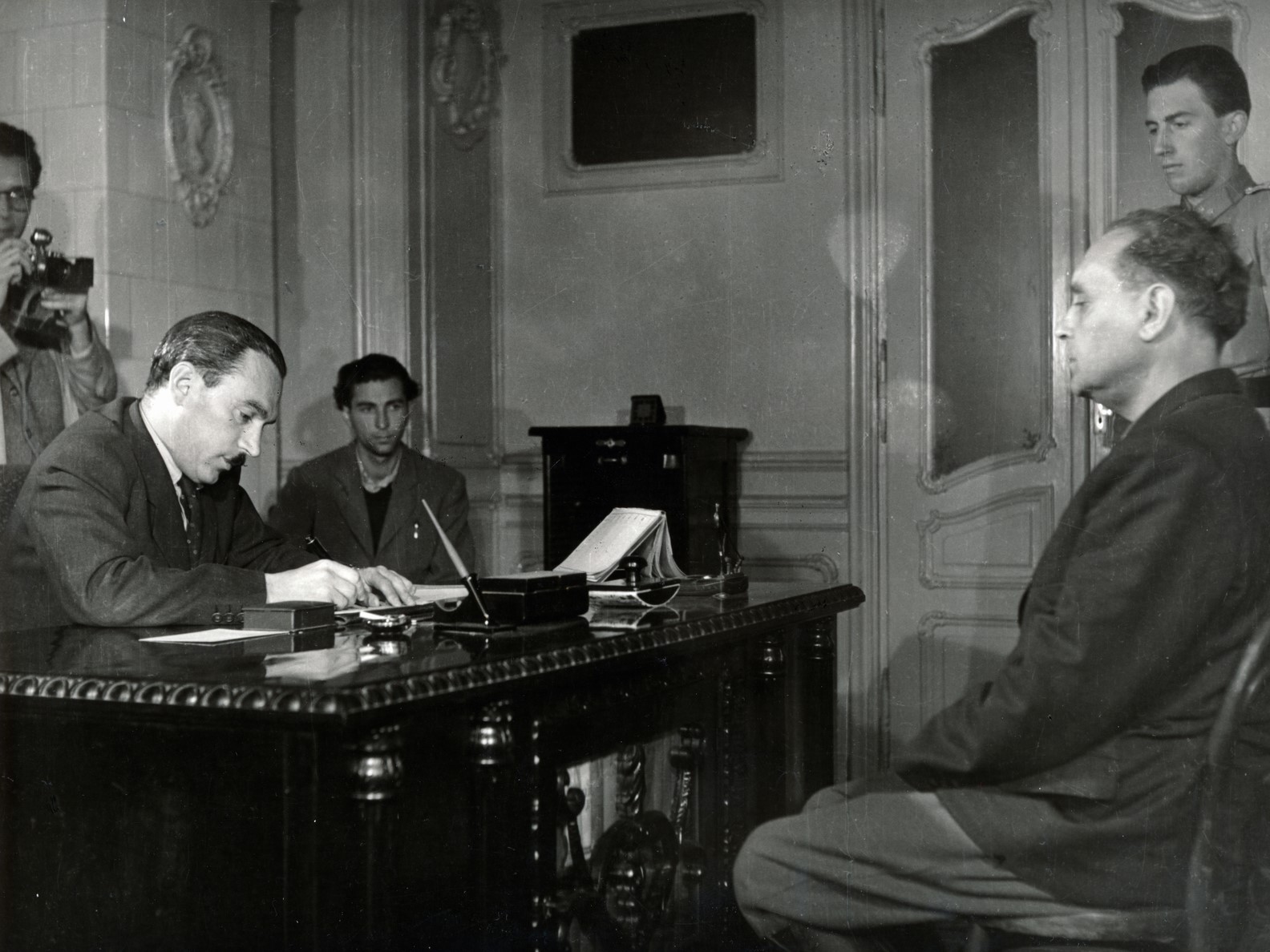Private army of the communists, later known as the ÁVH (State Protection Authority), established on 2 February 1945.
In the first days of February 1945, the dreaded terror organisation of the communist era [...] the predecessor of the later ÁVH - the Political Police Department of the Budapest Police Headquarters (BRFK PRO), under the direction of Gábor Péter was established. The unit, which functioned virtually as a private army of the Communist Party, was organised within the police, but its leader never recognised any superior other than Mátyás Rákosi or directly the Soviet secret service officers.
One of the first tasks of the Hungarian Communist Party was to organise a political police force - along the lines of the Bolshevik Cheka - and so the siege of Budapest was still in full swing when they began to mobilise on two parallel lines at the same time. The Interior Minister of the Provisional Government, Ferenc Erdei, entrusted András Tömpe, a well-known cadre of the international communist brigades, with the task of setting up the armed corps in Debrecen, but by the time Tömpe arrived in the capital, the local party organisation was one step ahead. Gábor Péter emerged victorious from their rivalry, despite the fact that the police force he commanded initially only had jurisdiction in Budapest, and the body organised by Tömpe was responsible for the supervision of the countryside.
Gábor Péter had an advantage over Tömpe, who was well known abroad, in that he was an unconditional servant of Rákosi and the Soviets. He proved his credibility by arresting Paul Demény, an old illegal communist in 1945 who was classified as a factionalist and whose main crime was that he did not belong to the Muscovites and did not recognise Rákosi's primacy. Demény represented nationalist leftist ideas and was also very popular among the Budapest working class, thus he posed a threat to the unpatriotic Moskovite line. Pál Demény had been a patron of Benjamin Eisenberger during the illegality, and he also invented the pseudonym Gábor Péter for him. Péter owed him a personal debt of gratitude, so by arresting him he indeed demonstrated his blind loyalty to the Rákosi family. The PRO, with the support of the communist-controlled Ministry of the Interior, was soon operating on a national scale.

The PRO briefly resided in a palace in Eötvös Street - today the building of the Historical Archives of the State Security Services - but soon afterwards they moved to 60 Andrássy Avenue. Originally built as a civilian residence, the building became politically significant in 1937, when the National Socialist movement of Szálasi rented some rooms there. In 1940, it became the official headquarters of the party and was then named the House of Loyalty. Under the Arrow Cross regime, the headquarters also became a prison, and many people were tortured there. Gábor Péter chose the infamous building as his headquarters precisely because of its symbolism, and for a time he shared it with the organisation led by András Tömpe.
Officially, the PRO was responsible for tracking down war criminals and bringing them to justice in the People's Court, but from the very beginning it acted as the main safeguard for the preparation of the Communist takeover. It tracked down and eliminated potential opponents of the party, directed purges in the administration and judiciary and - by bringing the institution of internment under its own jurisdiction - could arrest virtually anyone without trial. Among its main targets were small farmers and social-democratic politicians, the main political rivals of the Communists.
The PRO existed in this form until October 1946, when it was transformed into a national organisation: the State Protection Department of the Hungarian State Police, the infamous ÁVO was founded.